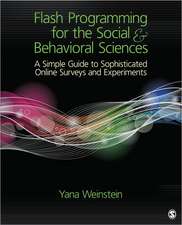Ethics in Ethnography: Ethnographer's Toolkit, Second Edition
Autor Margaret Diane LeCompte, Jean J. Schensulen Limba Engleză Paperback – mar 2015
Preț: 441.00 lei
Nou
Puncte Express: 662
Preț estimativ în valută:
84.39€ • 90.24$ • 70.36£
84.39€ • 90.24$ • 70.36£
Carte tipărită la comandă
Livrare economică 17 aprilie-01 mai
Preluare comenzi: 021 569.72.76
Specificații
ISBN-13: 9780759122093
ISBN-10: 0759122091
Pagini: 396
Ilustrații: 1 black & white illustrations, 2 black & white halftones, 2 tables
Dimensiuni: 164 x 224 x 17 mm
Greutate: 0.53 kg
Ediția:2 Rev ed.
Editura: Rowman & Littlefield
Seria Ethnographer's Toolkit, Second Edition
ISBN-10: 0759122091
Pagini: 396
Ilustrații: 1 black & white illustrations, 2 black & white halftones, 2 tables
Dimensiuni: 164 x 224 x 17 mm
Greutate: 0.53 kg
Ediția:2 Rev ed.
Editura: Rowman & Littlefield
Seria Ethnographer's Toolkit, Second Edition
Cuprins
List of Examples
Introduction to the Ethnographer¿s Toolkit
1¿Ethics and Ethnography
Introduction
What Are Ethics?
What Are Research Ethics?
Ethics in Social Science Research
What Is a Human Subject?
Ethics and Epistemology: Do Ethnographers Face Greater
Ethical Challenges Than Other Types of Researchers?
Confronting the Stereotype of Scientific Neutrality
Formal Research Ethics and Everyday Research Ethics
Summary
2¿The Evolution of Formal Concerns about and Ethical Principles Governing Human Research
The Origins of Formal Oversight
Medical Research and Risk to Human Subjects
Social Science Research and Risks to Human Subjects Disciplinary Codes of Ethics and the Problems of Enforcement
The Belmont Report 1978
The Belmont Principles
Summary
3¿Formal and Semiformal Responsibilities
Introduction
Semiformal Responsibilities
Formal Contractual Responsibilities
When Is IRB or IEC Approval Necessary?
Issues of Particular Concern to IRBs and IECs
Levels of Review
Components of an IRB Proposal
The Power of Institutional Review Boards and Institutional Ethics Committees
Coping with Multiple IRBs
Summary
4¿Informal Ethics: The Implications of Researcher Roles and Characteristics
Introduction
The Embedded Contexts and Multiple Roles of Ethnographic Work
Being a Learner
Creating a Field Identity
Coping with Relationships in the Field: Personal Characteristics, Asymmetrical Relationships, and Positionality
Personal Friendships in the Field
Summary
5¿Informal Ethics: Long-Term Relationships and Reasonable Responsibilities
Introduction: Feasible and Possible Responsibilities
Coping with Associations in the Field: Affiliations and Sponsorships
Maintaining Good Relationships
Coresearchers and Research Partners
Negotiating an Exit and Leaving the Field
Reciprocity and Feedback
Dissemination and Disposition of Data
Assuring Program Continuation
Summary
6¿Ethical Issues in Ethnographic Teamwork and Community-Based Research
Introduction
Ethical Considerations in Intrateam Interactions
Ethical Considerations in Team Interaction with Study Communities/Sites and Participants
Protecting the Study Community
Summary
7¿ Going Beyond Belmont: New Issues and Challenges
Introduction
Challenges to IRB ¿Surveillance¿ and Control Contesting Western Epistemological and Ontological Hegemony
Redefining Key Terms in the Twenty-First Century
Obtaining Consent
Exposure to Risks and New Forms of Vulnerability
Technology and Retrievability of Information
Ethics and the Consequences of Interpretation
Summary
8¿The Role of Reflection in Ethnographic Research
Introduction: What Is Reflection?
Identifying Subjectivities
Positionality and Power
The Risks of the ¿Other¿
Taking Stock
Summary
Appendix A: IRB Proposals
Appendix B: Consent Forms and Assent Forms
References
Index
About the Authors
Notă biografică
Descriere
Ethics in Ethnography (Book 6 in the Ethnographer's Toolkit series) explores the burgeoning field of research ethics and addresses how ethical considerations-formally-imposed as well as informal, "everyday" concerns-underpin good ethnographic research.














